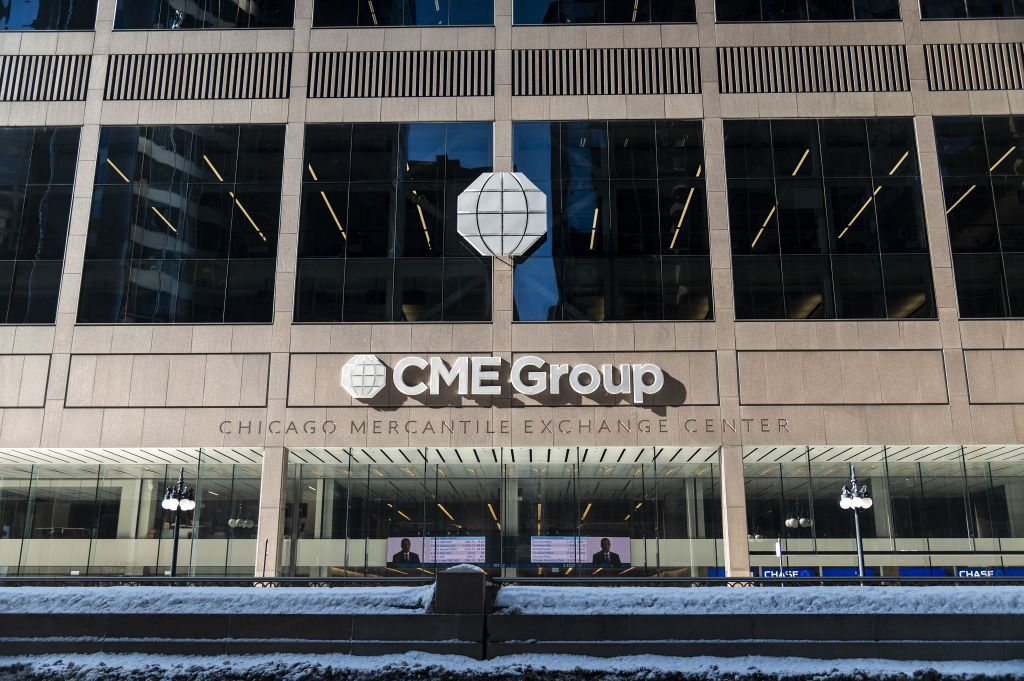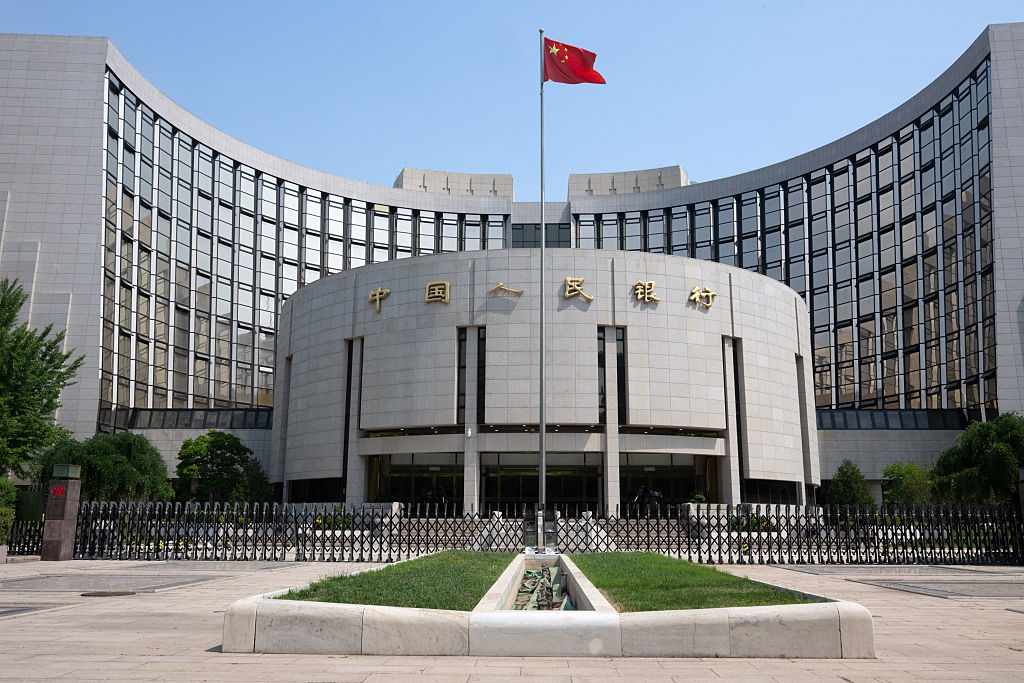It's time to back the yen, says Dominic Frisby
The Japanese yen has been weak for a long time. That may soon change.


Get the latest financial news, insights and expert analysis from our award-winning MoneyWeek team, to help you understand what really matters when it comes to your finances.
You are now subscribed
Your newsletter sign-up was successful
Want to add more newsletters?

Twice daily
MoneyWeek
Get the latest financial news, insights and expert analysis from our award-winning MoneyWeek team, to help you understand what really matters when it comes to your finances.

Four times a week
Look After My Bills
Sign up to our free money-saving newsletter, filled with the latest news and expert advice to help you find the best tips and deals for managing your bills. Start saving today!
I can’t help thinking there are some real opportunities coming in the yen. The currency has been extremely weak for a long time. Against the US dollar, it is at lows not seen since before the turn of the century.
We all know what a rotten currency the pound has been. Inflation has eroded a third of its purchasing power since 2020. A third! Against the constant that is gold, it has lost 90% of its purchasing power since 1999. And yet against the yen, the pound is at seven-year highs, not far off the levels seen before the global financial crisis in 2008. In those days a pound bought you two dollars, instead of the $1.21 it gets you today.
In terms of trading volume, the yen is the third-most important currency in the world, after the dollar and the euro, accounting for around 17% of global daily foreign exchange (forex) turnover. As that is thought to total $7.5trn, we are talking about approximately $1.3trn of daily trading volume. No small beer.
MoneyWeek
Subscribe to MoneyWeek today and get your first six magazine issues absolutely FREE

Sign up to Money Morning
Don't miss the latest investment and personal finances news, market analysis, plus money-saving tips with our free twice-daily newsletter
Don't miss the latest investment and personal finances news, market analysis, plus money-saving tips with our free twice-daily newsletter
Why the yen is so weak
The main reason is that, while other central banks, especially the US Federal Reserve, have raised rates, the Bank of Japan (BoJ) has not. It has ignored rising inflation (perhaps because Japan has had trouble with deflation for so long). Indeed, the BoJ has been creating digital money and buying extraordinary amounts of government bonds with it to cap rates.
The BoJ now owns over half of the Japanese national debt. My mind boggles when I read statistics like that. How can it be possible to print so much money and buy so much debt without apparent consequence? This is the BoJ’s so-called yield curve control. I wish they’d print money and buy me a mansion, or even just a nice car.
Suppressed rates lead to the yen carry trade: borrowing yen at a cheap rate and holding other currencies that pay a better yield. But when the carry trade reverses, as in 2007-2008, it tends to reverse very quickly. This reinforces the yen’s tendency to act as a safe-haven currency: during times of panic, such as we saw in 2008, there is rapid flight to the yen in a rush to unwind the carry trade.
Looking at the long-term dollar-yen exchange rate, the dollar made its low, or the yen its high, depending on how you view things, in late 2011 and 2012. Since then the yen has halved; 50% declines for a major currency are eye-catching. There were also plenty of previous sharp declines. It slumped between 1990 and 1995, between 1998 and 1999, from 2007 to 2011 and in 2015-2016. When that thing moves, it moves.
I’m not going to pretend to be any kind of an expert on Japanese policy, plans or goals, but I ask, at a certain point, will the BoJ step in to shore up the currency? Surely it must. Everything I read tells me it will. If so, at what point?
The 150 yen to the dollar level is one commonly cited number. 150 is where we are now. But I stress this is only a rumour. Investors have inferred from the BoJ’s statement last week that intervention is not imminent and may not be as significant as many hope. Hence last week’s sell-off.
A related question is: how long will so-called yield curve control go on for? Again, I can’t pretend to know the answer. I am struggling to get my head around the fact that it has been able to go on at all, let alone for this long.
Sterling and yen: a volatile pair
In the meantime, consider another highly volatile currency pair: the yen and sterling. This is where I think the money is going to be made. Going back to 1991, the rate has ranged between 255 and 120 yen to the pound.
During the periods of a strong yen, sterling came down like a stone: between 1990 and 1995; from 1998 to 2000; in 2007-2008 and in 2015-2016. The financial crisis saw the pound drop all the way from 250 to 120 to the yen, a 52% plunge.
These trends also tie in with my eight-year cycle of the pound: it is even more apparent when viewed in yen. As so much of the British economy is built on finance, sterling tends to be strong when financials are strong. It sells off during market panics, which is when money flees to the yen. Thus the pound and the yen are inversely correlated.
Sterling has been weak against most currencies since the summer. Cable (the name given to the sterling-US dollar exchange rate) has gone from $1.31 to $1.21. The eight-year-cycle in the pound seems to be playing out again. But against the yen it has hardly moved. It’s the same price that it was in June and July, and has been gaining against the yen since Covid. Does this trend continue, or is it exhausted?
Most of the 2020 Covid trades (the boom in technology stocks, in commodities, in bitcoin) have played out and unwound. But not the decline of the yen. That is still going strong. There is some catch-up to be had.
When does it end? That’s the question. There may still be some gas in the tank, but I’m starting to think sooner rather than later – if only because so few people are talking about it. I recently asked three different finance WhatsApp chat groups that I’m on if anyone had any decent yen material. Nobody came back with anything. Such things are often a good, contrarian sign. Nobody rings a bell at the top of the market, unfortunately. But this is one to watch.
Forex trading is extremely difficult. There is so much that can go wrong, especially to do with risk management, position sizing and timing. I don’t recommend it unless you know what you are doing. But I feel there could be an opportunity here.
This article was first published in MoneyWeek's magazine. Enjoy exclusive early access to news, opinion and analysis from our team of financial experts with a MoneyWeek subscription.
Related articles
- Is Japan the best market to invest in now?
- Japan's stock market gets a boost from the weak yen
- What is FX trading?
Get the latest financial news, insights and expert analysis from our award-winning MoneyWeek team, to help you understand what really matters when it comes to your finances.

-
 Should you buy an active ETF?
Should you buy an active ETF?ETFs are often mischaracterised as passive products, but they can be a convenient way to add active management to your portfolio
-
 Power up your pension before 5 April – easy ways to save before the tax year end
Power up your pension before 5 April – easy ways to save before the tax year endWith the end of the tax year looming, pension savers currently have a window to review and maximise what’s going into their retirement funds – we look at how
-
 Should you sell your Affirm stock?
Should you sell your Affirm stock?Affirm, a buy-now-pay-later lender, is vulnerable to a downturn. Investors are losing their enthusiasm, says Matthew Partridge
-
 Profit from pest control with Rentokil Initial
Profit from pest control with Rentokil InitialRentokil Initial is set for global expansion and offers strong sales growth
-
 In the money: how my trading tips fared in 2025
In the money: how my trading tips fared in 2025The success of the open positions offset losses on closed ones, says Matthew Partridge
-
 Coreweave is on borrowed time
Coreweave is on borrowed timeAI infrastructure firm Coreweave is heading for trouble and is absurdly pricey, says Matthew Partridge
-
 Circle sets a new gold standard for cryptocurrencies
Circle sets a new gold standard for cryptocurrenciesCryptocurrencies have existed in a kind of financial Wild West. No longer – they are entering the mainstream, and US-listed Circle is ideally placed to benefit
-
 Profit from other investors’ trades with CME Group
Profit from other investors’ trades with CME GroupCME Group is one of the world’s largest exchanges, which gives it a significant competitive advantage
-
 Investors need to get ready for an age of uncertainty and upheaval
Investors need to get ready for an age of uncertainty and upheavalTectonic geopolitical and economic shifts are underway. Investors need to consider a range of tools when positioning portfolios to accommodate these changes
-
 How much gold does China have – and how to cash in
How much gold does China have – and how to cash inChina's gold reserves are vastly understated, says Dominic Frisby. So hold gold, overbought or not